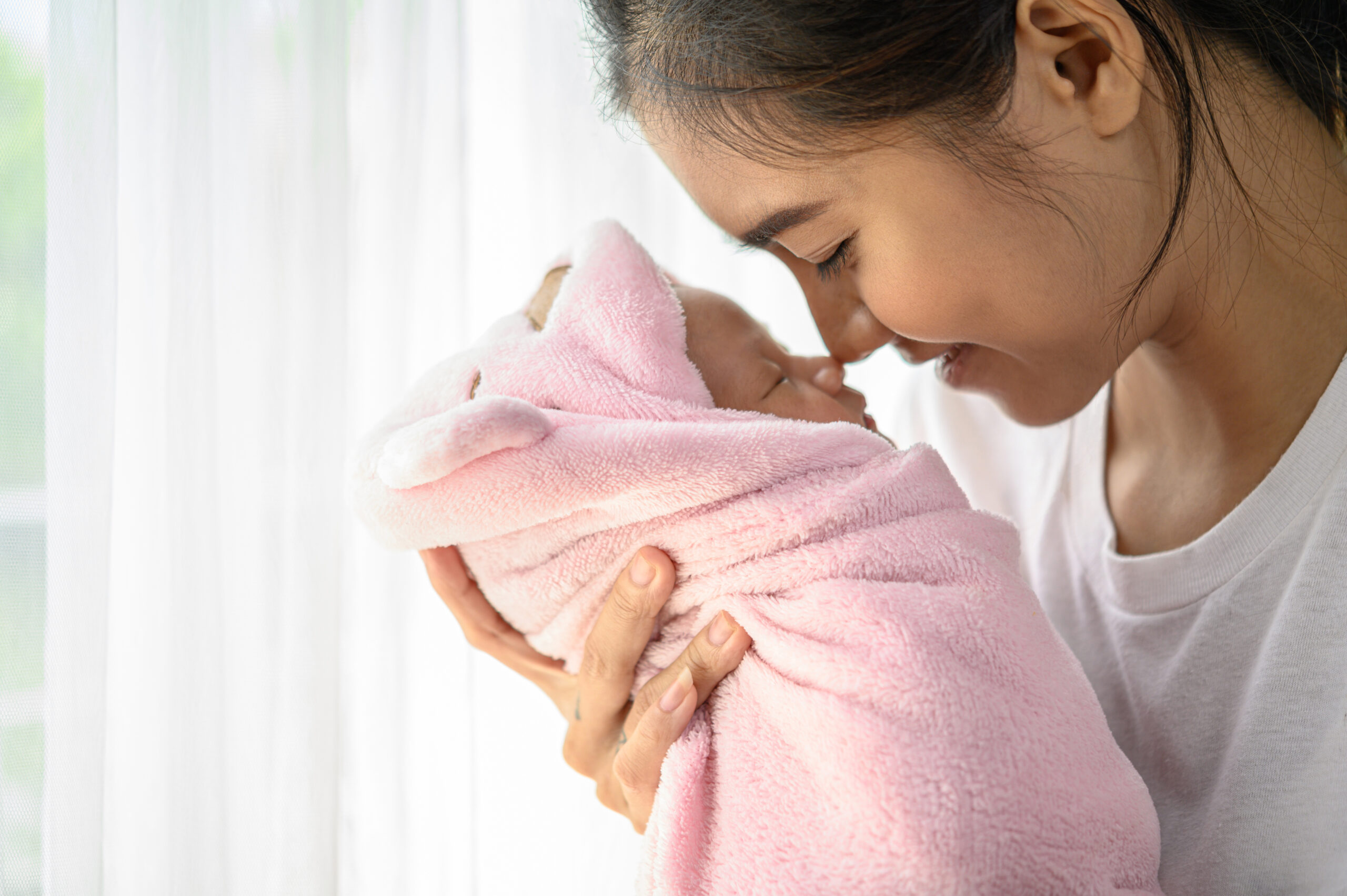
- adminMel
- March 20, 2024
- 11:58 am
Don’t Take After-Birth Confinement Too Lightly : for Malaysian Mothers (马来西亚妈咪千万不要轻视产后坐月子)

Postpartum mothers in Malaysia should not underestimate the importance of after-birth confinement care. This traditional practice plays a crucial role in the recovery and well-being of both mother and baby during the postnatal care period. Hiring a professional confinement nanny or seeking help from family members can ensure the mother receives adequate care, rest, and attention while adjusting to life with a newborn.
Nurturing Mothers Postpartum (产后妈咪的护理)
Bringing a new life into this world is an exhilarating journey, but it also demands tremendous physical and emotional adjustments, especially for postpartum mothers 产后妈咪. Amidst the joy and excitement of welcoming a newborn 新生儿, one aspect that often gets overlooked or underestimated is the postpartum period, particularly the practice of after-birth confinement.
Understanding After-Birth Confinement (了解产后坐月子)
After-birth confinement, known as 坐月子 in chinese, it’s a tradition deeply rooted in many cultures, including in Malaysia, involves a period of rest and postnatal recovery 产后恢复 for the mother following childbirth. It’s a time when she focuses on her physical and mental well-being while receiving support and assistance in caring for the newborn. This practice of confinement care aims to promote healing, replenish energy, and prepare the mother for the demanding task of nurturing her child.
Challenges Faced During Confinement in Malaysia (马来西亚坐月子期间面临的挑战)
Despite its significance, after-birth confinement is sometimes taken lightly or even disregarded in modern society. Busy schedules, societal pressures, and the desire to resume normal activities often lead mothers to neglect this crucial phase. However, this neglect can have detrimental effects on both the mother’s health and the bonding process with her newborn.
Physical Recovery During Confinement (坐月子期间的身体产后恢复)
Childbirth takes a toll on the body, and proper rest and care are essential for recovery. Ignoring the need for rest during confinement can prolong healing and increase the risk of postpartum complications such as infections or excessive bleeding. By prioritizing rest and self-care, mothers can regain their strength and vitality more effectively, allowing them to better care for their newborns in the long run.
Mental Well-being During Postnatal Care (产后护理期间的心理健康)
The postpartum period is also a time of significant emotional adjustment. Hormonal fluctuations, sleep deprivation, and the stress of caring for a newborn can contribute to feelings of anxiety, sadness, or even depression. Confinement provides a supportive environment where mothers can openly express their emotions and receive the assistance they need to cope with the challenges of motherhood.
Bonding with the Newborn (与新生儿建立亲密关系)
Building a strong bond with the newborn 新生儿 is crucial for their emotional and cognitive development. Confinement 坐月子 allows mothers to spend quality time bonding with their babies without the distractions of daily life. Through skin-to-skin contact, breastfeeding, and attentive caregiving, mothers can establish a secure attachment with their infants, laying the foundation for a lifetime of love and connection.
The Importance of Community Support (社区支持的重要性)
After-birth confinement is not just about the postpartum mother and child; it’s a communal effort. Family members, friends, or hired confinement nanny Malaysia 马来西亚月嫂 often play a vital role in providing care and support during this time. Their assistance enables the mother to focus on her recovery and bonding with the baby, fostering a sense of community and shared responsibility. In Malaysia, professional confinement nannies are often hired to help mothers focus on their postnatal recovery and bonding with the newborn, fostering a sense of community and shared responsibility in the process.
Conclusion: Prioritizing After-Birth Confinement Care (重视产后坐月子护理)
In conclusion, after-birth confinement is a practice that should not be underestimated or taken lightly. It serves as a vital period of rest, recovery, and bonding for postpartum mothers 产后妈咪 and their newborns 新生儿. By recognizing the importance of this tradition and prioritizing self-care and support, mothers can navigate the postpartum period with greater ease and confidence, laying the groundwork for a healthy and fulfilling motherhood journey.
Malaysia Confinement Nanny Price/Fees (马来西亚月嫂价格/费用)
Clients must pay the full confinement nanny service fee at least three months before their expected delivery date to enjoy the benefits of this plan. The starting cost of hiring a confinement nanny Malaysia 马来西亚月嫂 is at least RM7,500, and the exact fee is determined by the nanny. You can book and pay for services through the Nannies2u platform.
By choosing Nannies2u, you can access comprehensive confinement care services to ensure the health and happiness of both the mother and newborn (新生儿). With the support of Nannies2u, postpartum mothers 产后妈咪 can rest easily, knowing their baby is receiving the best care. Visit Nannies2u, the professional confinement nanny platform in Malaysia, to learn more and book your services today.
Let Nannies2u be your choice for a worry-free postnatal care experience in Malaysia! 享受无忧的马来西亚产后恢复体验!
Nannies2u provides not only professional and reliable services but also an outstanding user experience. Here are some reasons to choose Nannies2u:
- Diverse Services (多样化的服务): Offering a variety of confinement care services in Malaysia, including experienced confinement nannies and reliable helpers to meet the needs of different families.
- User-Friendly Platform (用户友好平台): Helping postpartum mothers easily, quickly, and conveniently find their confinement care needs and connect directly with service providers, ensuring a worry-free experience.
- Emphasis on Communication (强调沟通): Encouraging open and transparent communication between mothers and service providers, ensuring all work is discussed thoroughly before confirmation for smooth collaboration.
- Reliability and Safety (可靠,安全性): No hidden fees, with nannies arriving on time so that mothers can rest assured during their confinement period.
- Fixed Package Pricing (固定配套价格): Offering five fixed confinement care packages 月子护理配套 (Basic, Standard, Premium, VIP, VVIP) in Malaysia, avoiding any hidden costs or unexpected expenses.
- Customer Support (客户支持): Friendly and dedicated customer support is always available to assist you.
- Comprehensive Postnatal Care Products (全面的产后护理产品): Nannies2u provides comprehensive postnatal care products for mothers in Malaysia, ensuring the health and comfort of both mother and baby.
By choosing Nannies2u, you’re ensuring a smooth and supportive journey through postnatal care in Malaysia!
Read More
- Malaysia Confinement Nanny Interview Guide: How to Choose the Right Nanny for You
- A Comprehensive Guide to Hiring a Malaysia Confinement Nanny
- A Must-Read for Malaysian Mothers and Confinement Nannies: 12 Essential Postpartum Recovery Tips
妈咪必看马来西亚坐月子指南:
马来西亚新手妈咪到底怎么选靠谱月嫂?别白请了
CK Mama教你看月嫂的工作范围到底是什么?快来看看自家月嫂有没有“吃蛇”呢??
马来西亚怀孕妈妈中期食欲不佳❓了解底层逻辑
上期教大家怀孕前期孕吐的那些事 今天分享怀孕中期应该吃什么Z佳✨
Share our article:
Suggested Article


Understanding the “Berpantang” Tradition and the Importance of “月子”

Suggested Articles

7个理由:为什么马来西亚妈咪在家坐月子期间需要产后按摩/月子按摩
在马来西亚坐月子期间,产后妈咪的身体需要全面的恢复和调理。随着马来西亚月嫂服务的普及,越来越多的新妈…

2024 孕期护理与产后护理指南:马来西亚准妈妈与新妈咪色斑、妊娠纹及体型恢复的实用建议
对于马来西亚的准妈妈和新妈咪而言,怀孕和产后护理是至关重要的阶段。这一时期的变化不仅包括色斑、妊娠纹…

2024 新生儿护理指南:3-6个月宝宝哄睡与安抚技巧 | 马来西亚新手爸妈必看
宝宝哄睡要点总结: 在宝宝早期的几个月,灵活地应对宝宝的需求非常重要。 三个帮助宝宝入睡的关键技巧:…

